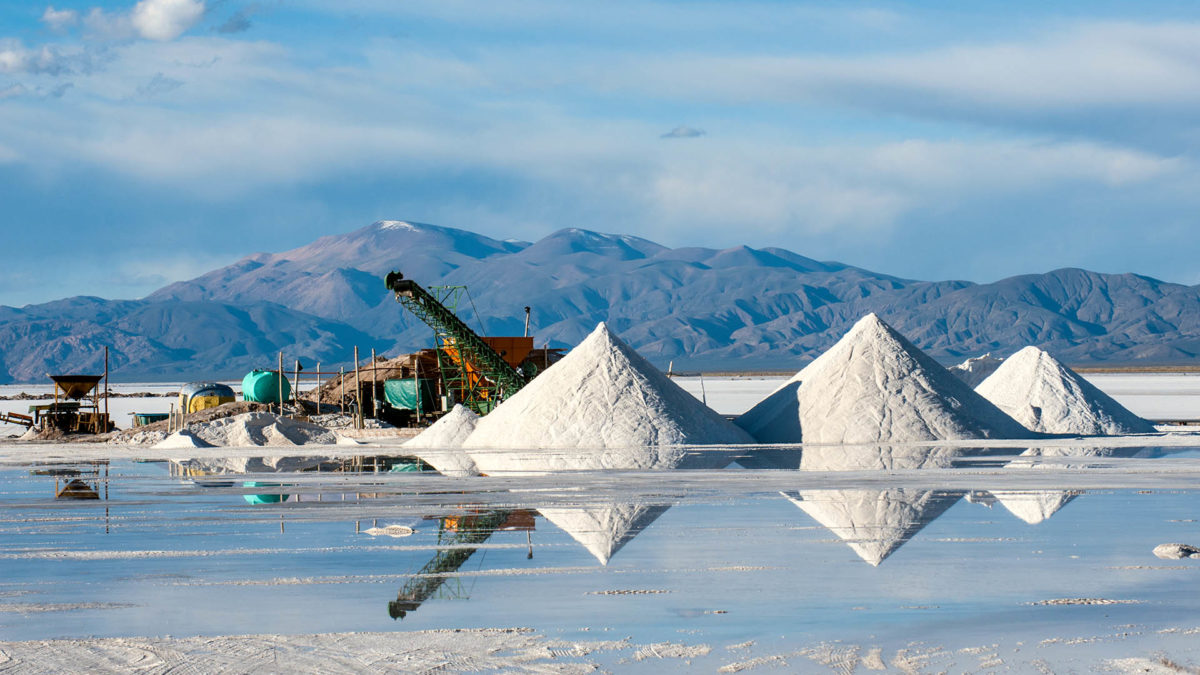Australian researchers have developed an innovative technology enabling direct lithium extraction from difficult-to-process sources like saltwater, which they say represents a substantial portion of the world’s lithium potential.
Until now, up to 75% of the world’s lithium-rich saltwater sources have remained untapped because of technical limitations, but given predictions that global lithium supply could fall short of demand as early as 2025, the researchers believe they have a game-changing solution.
Their technology is a type of nanofiltration system that uses ethylenediaminetetraacetic acid, or EDTA, as a chelating agent to selectively separate lithium from other minerals, especially magnesium, which is often present in brines and difficult to remove.
The work has been co-led by Dr Zhikao Li from the Monash Suzhou Research Institute and the Department of Chemical and Biological Engineering, and Professor Xiwang Zhang from the University of Queensland.
The researchers say that beyond the method’s impressive efficiency, the system also addresses major environmental concerns associated with lithium extraction. Unlike conventional methods that deplete vital water resources in arid regions, the technology produces freshwater as a by-product. The technology also turns leftover magnesium into a valuable, high-quality product that can be sold, reducing waste and impact on the environment.
Studies for the technology were undertaken on brines from China’s Longmu Co Lake and Dongtai Lake, with the results published in the Nature Sustainability journal this week
“High-altitude salt brine flats in countries like China (Tibet and Qinghai) and Bolivia are examples of areas with tougher brine conditions that have traditionally been ignored. In remote desert areas, the vast amounts of water, chemicals and infrastructure required for conventional extraction just aren’t available either, underscoring the need for innovative technologies,” Dr Li said.
“With Monash University’s EALNF [EDTA-aided loose nanofiltration] technology, these can now be commercially viable sources of lithium and valuable contributors to the global supply chain.” Li
Dr Li said the system was flexible and ready for large-scale use, meaning it can quickly expand from testing to full industrial operations.
This content is protected by copyright and may not be reused. If you want to cooperate with us and would like to reuse some of our content, please contact: editors@pv-magazine.com.









4 comments
By submitting this form you agree to pv magazine using your data for the purposes of publishing your comment.
Your personal data will only be disclosed or otherwise transmitted to third parties for the purposes of spam filtering or if this is necessary for technical maintenance of the website. Any other transfer to third parties will not take place unless this is justified on the basis of applicable data protection regulations or if pv magazine is legally obliged to do so.
You may revoke this consent at any time with effect for the future, in which case your personal data will be deleted immediately. Otherwise, your data will be deleted if pv magazine has processed your request or the purpose of data storage is fulfilled.
Further information on data privacy can be found in our Data Protection Policy.